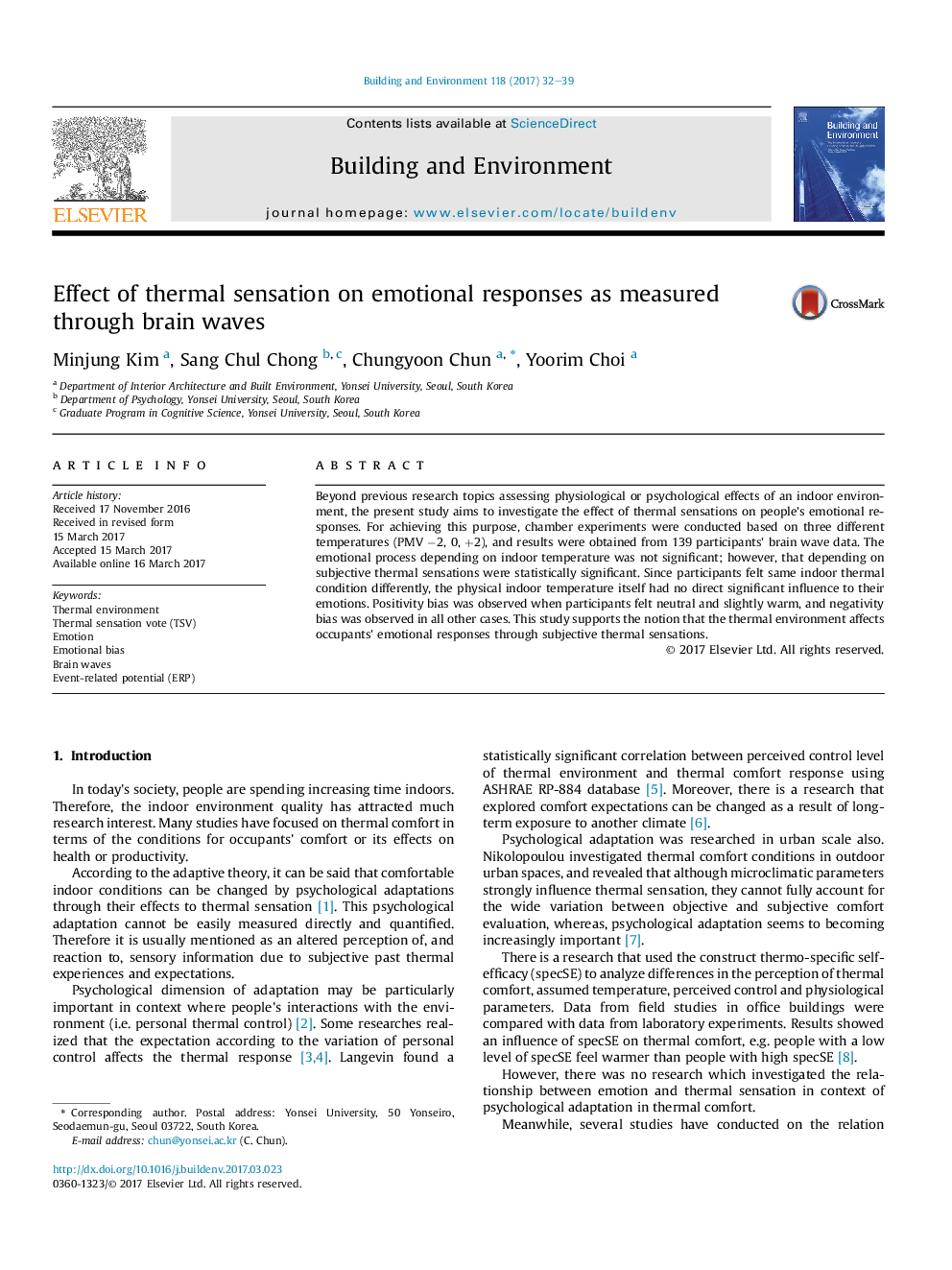| Article ID | Journal | Published Year | Pages | File Type |
|---|---|---|---|---|
| 6479253 | Building and Environment | 2017 | 8 Pages |
â¢The indoor temperature itself had no direct significant influence to emotions.â¢Emotion was significantly different depending on subjective thermal sensation.â¢Positivity bias was observed when participants felt neutral and slightly warm.
Beyond previous research topics assessing physiological or psychological effects of an indoor environment, the present study aims to investigate the effect of thermal sensations on people's emotional responses. For achieving this purpose, chamber experiments were conducted based on three different temperatures (PMV â2, 0, +2), and results were obtained from 139 participants' brain wave data. The emotional process depending on indoor temperature was not significant; however, that depending on subjective thermal sensations were statistically significant. Since participants felt same indoor thermal condition differently, the physical indoor temperature itself had no direct significant influence to their emotions. Positivity bias was observed when participants felt neutral and slightly warm, and negativity bias was observed in all other cases. This study supports the notion that the thermal environment affects occupants' emotional responses through subjective thermal sensations.
